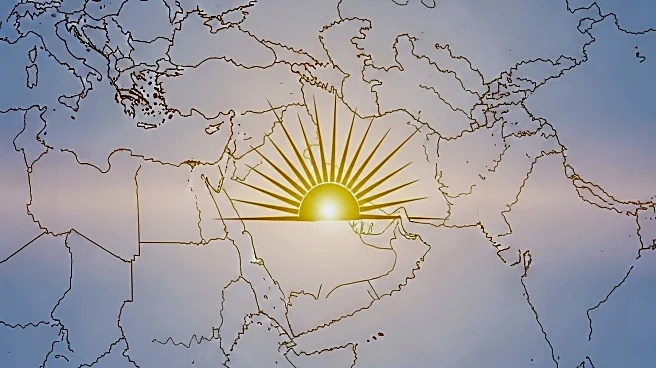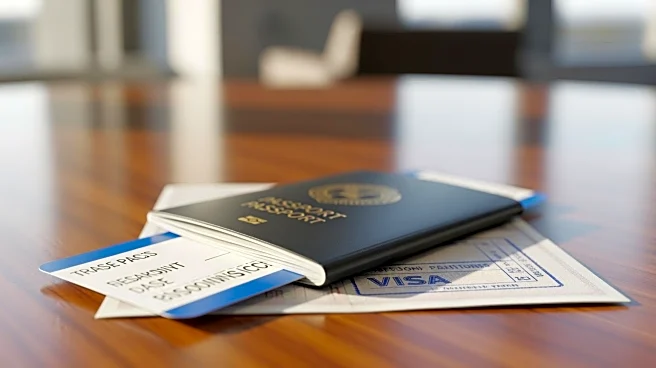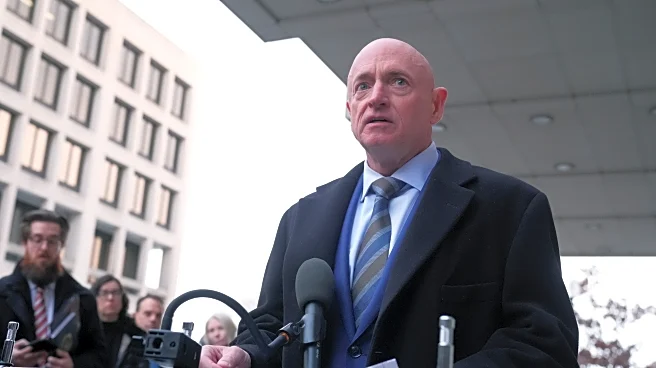What is the story about?
What's Happening?
President Trump has signed a declaration for peace in Gaza at a summit in Sharm el-Sheikh, Egypt, alongside leaders from Egypt, Qatar, and Turkey. This marks the first phase of Trump's 20-point peace plan, which includes a ceasefire between Israel and Hamas. The agreement involves the release of 250 Palestinian prisoners and the return of 20 Israeli hostages. Trump addressed the Israeli parliament, the Knesset, declaring the end of a 'long and painful nightmare' and the beginning of a 'historic dawn of a new Middle East.' The ceasefire took effect on Friday morning, and Trump expressed confidence that it would hold, with plans to establish a 'board of peace' to administer the territory.
Why It's Important?
The peace plan and ceasefire represent a significant diplomatic achievement for President Trump, potentially reshaping the geopolitical landscape of the Middle East. The agreement could lead to improved relations between Israel and its neighbors, fostering stability in a region long plagued by conflict. The release of hostages and prisoners is a critical step towards reconciliation, offering hope for a lasting peace. This development may also enhance Trump's standing as a global peacemaker, with implications for U.S. foreign policy and its role in international diplomacy.
What's Next?
The next phases of Trump's peace plan are yet to be negotiated, with ongoing discussions expected to address the role of the Palestinian Authority in Gaza. The establishment of a 'board of peace' to oversee the territory is anticipated, with Trump at its helm. The success of the ceasefire and subsequent negotiations will be crucial in determining the long-term stability of the region. Political leaders and stakeholders will closely monitor the situation, with potential reactions from various groups influencing the outcome of future talks.
Beyond the Headlines
The peace plan could have deeper implications for the cultural and social dynamics in the Middle East, potentially fostering a new era of cooperation and understanding among historically adversarial groups. The involvement of multiple regional leaders in the agreement highlights a shift towards collective diplomacy, which may influence future conflict resolution strategies. The plan's success could serve as a model for addressing other global conflicts, emphasizing the importance of negotiation and compromise.

















